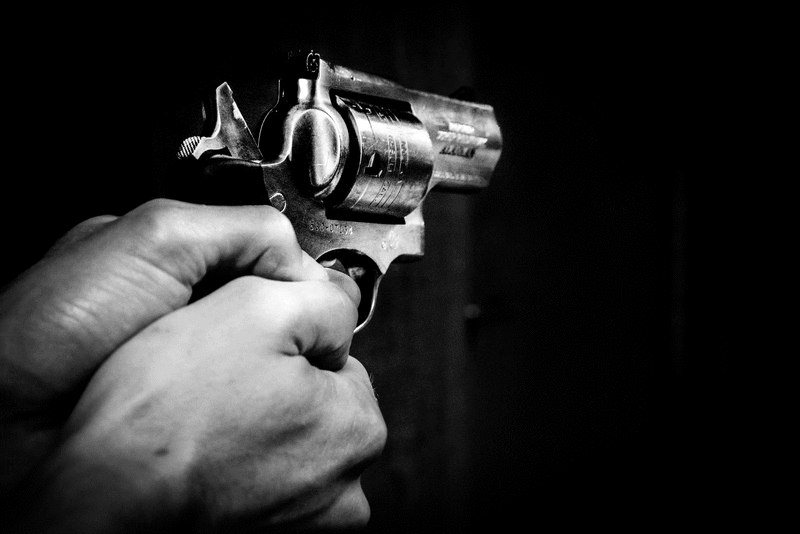A Florida killing is forcing the state and its residents to re-examine its policies on ‘stand your ground’ and the use of firearms in self-defense.
Six years after the death of Trayvon Martin, another tragic, controversial series of shots is challenging statutes. Last week, footage from a Clearwater, FL, convenience store captured video of an altercation between two men.
Markeis McGlockton, a black father of three, confronted and pushed Michael Drejka to the ground.
Drejka, who’s white, had approached McGlockton’s girlfriend. The woman had parked in a handicap spot without a permit. Drejka began berating her; when McGlockton returned to the car from inside the convenience store, he found a strange man shouting at his loved ones. He pushed Drejka down.
From the pavement, Drejka unholstered a handgun and started shooting. McGlockton died shortly afterward.
McGlockton’s family has expressed outrage over the state’s decision not to press charges against Drejka.
“We are here to demand justice for the cold-blooded murder of Markeis McGlockton by the self-appointed, wannabe cop Michael Drejka,” said the family’s attorney, Benjamin Crump. “This follows a long line of these alleged stand-your-ground murders in the state of Florida.”
Under Florida’s stand-your-ground statutes, individuals who feel physically endangered by another person can respond to a direct threat with lethal force. The law doesn’t require forewarning.
Pinellas County Sheriff Bob Gualtieri justified his decision not to press charges with stand-your-ground.
George Zimmerman’s former defense attorney, Mark O’Mara, said fear of litigation might have underpinned Gualtieri’s decision.

“Look, the reason the sheriff didn’t make an arrest is that he could potentially be sued,” O’Mara said.
O’Mara said he understands the law and its purpose—as a defense attorney, he’s used it to protect clients like Zimmerman from conviction.
“The problem I have is that people misinterpret the statute and are emboldened to use a gun,” he said. “Look at this case. Pointing the gun? Absolutely. Shooting a warning shot? Fine. But shooting him?”
While many states have their own takes on ‘stand-your-ground,’ Florida’s statute says that people have no “duty to retreat” if they fear death or serious bodily harm. Individuals who invoke the law in self-defense are immune to prosecution and civil liability.
O’Mara said he believes Zimmerman’s case was different—he was on the ground and had nowhere to run.
While O’Mara’s take on events are open to interpretation, he nonetheless said he was less than certain about stand-your-ground’s applicability in McGlockton’s death.
Drejke told officers that “after being slammed to the ground, he felt was going to be further attacked.’ Reports of the parking lot altercation indicate that McGlockton backed away as soon as Drejke unholstered his handgun.
Surprisingly, O’Mara’s comments to USA Today suggest he felt the outcome would have been different if the races of Drejke and McGlockton were reversed. He said there are lessons to be learned—both from parking in handicapped spots without a disability to leaving law enforcement to actual officers.
“Will we learn anything from all of these lessons presented by this one bullet? If history is a teacher, the answer is no,” he said. “But maybe someday some bullet will actually strike us in a place where will not only shed a tear, but stop, change direction and listen more to the laws of God.”
Sources
Attorney calls Markeis McGlockton’s death ‘cold-blooded murder’ by ‘wannabe cop’
‘People emboldened’: Stand your ground laws face new scrutiny; George Zimmerman’s lawyer isn’t a fan


Join the conversation!